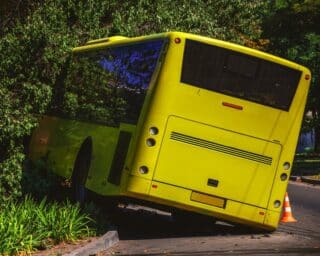The coronavirus pandemic hasn’t stopped drunk drivers from hitting the road and causing accidents in Nevada. While bars and restaurants are closed, many people are enjoying alcoholic beverages at friends’ houses before driving home. It’s a dangerous and risky behavior that is also coupled with the use of prescription medication and narcotics.
Impaired Drivers During the Coronavirus Pandemic
Enforcement of traffic laws in Nevada has not ceased because of the pandemic. While fewer drivers are on the road, many are choosing to drive while intoxicated. Many are driving under the influence of alcohol, marijuana, and prescription medications. The combination of which creates significant impairment of driving abilities.
One of the problems is the state’s open container laws. Specifically, the fact that some drivers in communities that have temporarily allowed the delivery of alcohol, or the pick-up of alcohol during the pandemic are opening their drinks for the drive home. While these communities have allowed for the pick-up and delivery of alcoholic beverages, it is still prohibited for drivers or their passengers to open them in a vehicle or consume them while driving.
There are many reasons drivers are flaunting the law. These include chafing at the restrictions placed upon them by the pandemic, stress over the COVID-19 pandemic, job loss, and simple ignorance of how the combination of alcohol, medication, and marijuana impair their ability to safely operate a motor vehicle. However, these are not valid excuses and motorists are still accountable for their actions and the impact they can have on the health and safety of pedestrians and other motorists.
DUI in Nevada
Nevada has some of the highest drunk driving rates in the United States. In recent years, more people in Nevada died as the result of DUI accidents than other states. By 2018, that trend had started to reverse itself. As of 2018, it was estimated that 2.9 out of every 100,000 residents died in a DUI accident each year as compared to the national rate of 3.2 per 100,000. Nationwide, it’s estimated that 29% of fatal motor vehicle accidents involve at least one impaired driver.
In 2018, 87 people died in drunk driving accidents in Nevada. Many thousands more suffered serious injuries in these accidents. While the number of DUI accidents and fatalities is significant, it is starting to decline. One reason for the reversal has been enhanced enforcement of DUI laws across the state. This includes the use of checkpoints and other measures designed to deter drunk driving behaviors.
The Combination of Drugs, Alcohol, and Marijuana is a Deadly Mix
Fatal accidents are declining in Nevada, however, there’s significant reason to believe this may change. While the number of marijuana-related accidents declined 24% in 2018, the number of accidents involving a combination of alcohol, prescription drugs, and marijuana rose 34% from 2017 to 2018. Current arrest data from across the state shows that a significant number of people arrested for DUI are imbibing multiple substances that can impair their cognitive functions and increase their risk of causing a deadly accident.
DUI Laws and Penalties in Nevada
Nevada’s DUI laws haven’t changed because of the COVID-19 pandemic. All motorists with a BAC of .08% or more are guilty of driving while intoxicated. The limit is even lower, .04% for all commercial motor vehicle operators, and .02% for all underage drivers.
Nevada enforces very strict DUI laws. For a first offense, individuals can face up to 180 days in jail, with a minimum of 2 days or 48-96 hours of community service. There’s also a $400 fine and loss of license for no less than 185 days. Drivers are also required to install an ignition interlock device for anywhere from six months to three years depending on their BAC level at the time of their arrest.
For a second offense, the penalties rise considerably. Individuals found guilty of a second DUI offense can face a minimum of 10 days in jail or home confinement, with a potential for 180 days of incarceration. The fine rises to a minimum of $750 or equivalent community service, loss of license for 365 days, and an ignition interlock device for up to three years, again, depending on BAC at time of arrest.
If it is the individual’s 3rd offense, the penalties rise dramatically. They include one to six years in state prison, $2,000 minimum fine, loss of license for three years, and installation of an ignition interlock device for one to three years following release.
Further, Nevada’s implied consent law allows law enforcement to arrest an individual for DUI even when they refuse to submit to a blood, urine, or breathalyzer test. Penalties for refusal include license revocation for one year on a first offense, and three years for any second or subsequent offense within any seven-year period.





